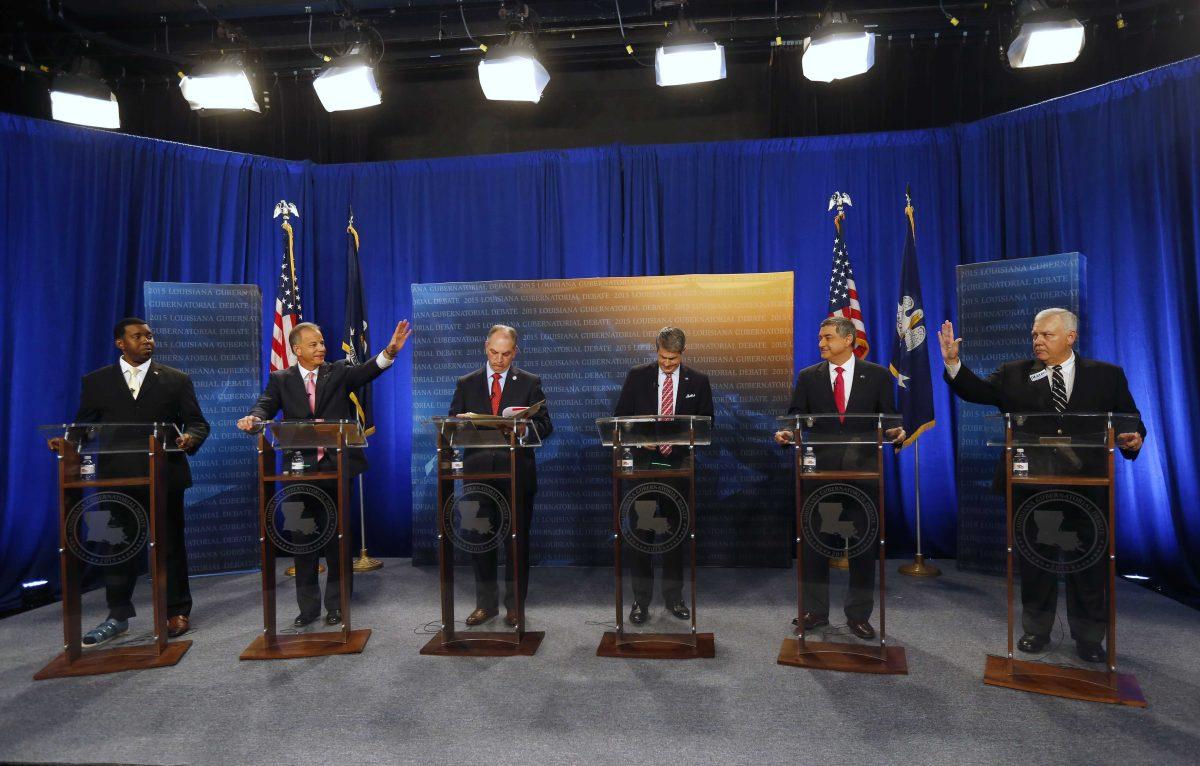The LSU Alumni Association released answers from the four leading Louisiana gubernatorial candidates to a survey regarding higher education Monday afternoon.
The Association sent a list of six questions to candidates Scott Angelle, Jay Dardenne, John Bel Edwards and David Vitter on Sept. 29, with a deadline to respond by Oct. 7. The Association’s Tiger Advocates group, a legislative advocacy network, released the full results.
In response to a question involving an LSU-supported funding model that rewards student outcome and performance, Angelle said his administration would ensure performance is rewarded by working toward the original goals of the Granting Resources and Autonomies for Diplomas Act.
According to its website, the GRAD Act encourages universities to meet specific performance objectives in exchange for increased tuition authority and eligibility to participate in certain autonomies. Angelle said the Act was not operating at its fullest potential.
“As governor, I would work towards an outcomes-based funding formula that is true to the original goals that the GRAD Act set out to achieve: results,” Angelle said in his written response.
Vitter also said his administration would fully comply with the GRAD Act, so universities can measure their benchmarks with clear, applicable metrics.
Dardenne agreed with Angelle that the GRAD Act was more attractive in theory than in practice. He said the WISE Act, which allocated $40 million to an incentive fund, was more “aptly named.”
“It encourages private sector financial participation to provide additional dollars based upon course offerings tailored to the job demands in Louisiana,” Dardenne wrote.
However, Edwards disagreed that higher education funding should be outcomes-based, instead opting for general financial support and academic innovation that would prepare students for the workforce.
Another question dealt with the higher education budget’s balance of state appropriations and tuition dollars. In the next Special Legislative Session, Vitter said he would work to stabilize the budget through tax reforms to prevent further cuts to higher education.
“We absolutely need to eliminate the endless cycle of ‘slashing funding/raising tuition’ that is pricing many young Louisianians out of good higher ed opportunities,” Vitter wrote.
Angelle said he would focus on the need-based financial opportunities offered by the federal Pell Grant program and the Go Grant program.
Dardenne said the recent tuition increases created an unbalanced funding stream of 80 percent tuition and 20 percent state funding. Though he does not have a particular percentage balance in mind, he said he thinks state funding should be weighted more heavily, and TOPS costs should be shifted back to the state.
Edwards said Louisiana is currently at 60 percent of the Southern Regional Education Board funding average, and the state funds 75 percent of higher education with student tuition and fees. At the beginning of Jindal’s first term, Edwards said the state was at 101 percent of the SREB average and relied on 70 percent state support and 30 percent tuition.
“…We must achieve a balanced funding mix for higher education to include 50 percent state funding and 50 percent tuition,” Edwards said.
Other questions dealt with low enrollment at other LSU institutions, state supported research and the future of the state’s student workforce. Full responses are published on the Alumni Association’s website.
LSU Alumni Association releases gubernatorial survey answers
October 12, 2015
Gubernatorial candidates ready themselves for a debate, sponsored by WDSU, at their studio in New Orleans, Thursday, Oct. 1, 2015. From left are: Rev. Jeremy Odom, Louisiana Public Service Commissioner Dist. 2., Scott Angelle, state Rep. John Bel Edwards, D-Baton Rouge, Sen. David Vitter, R-La., Lt. Gov. Jay Dardenne, and attorney Cary Deaton. (AP Photo/Gerald Herbert)
More to Discover








